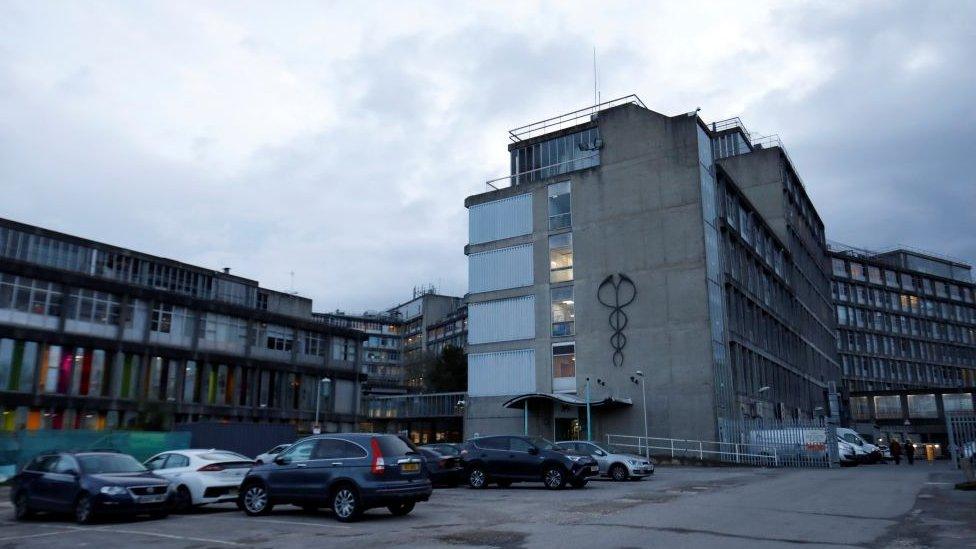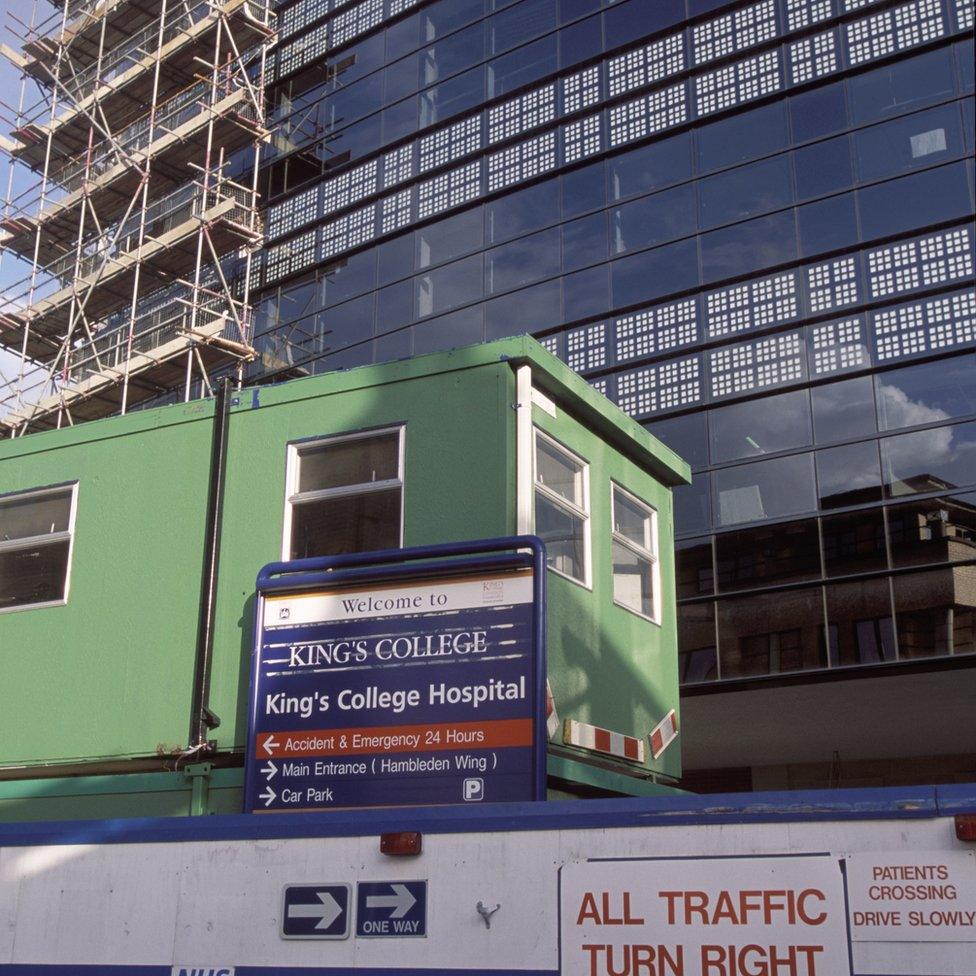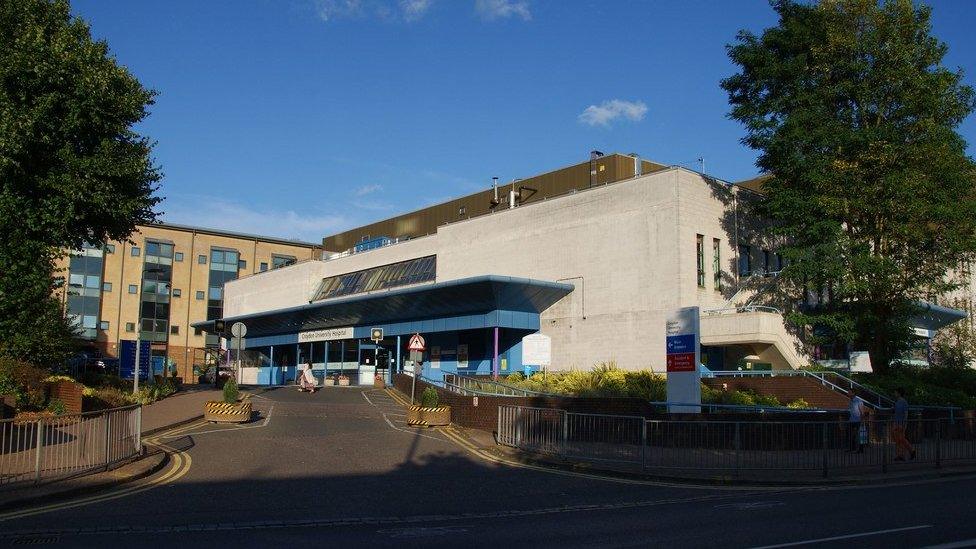Leaks and extreme temperatures affecting patient care in London
- Published
Watch: Leaks and extreme temperatures affecting patient care in London
Leaks, excessive temperatures and shocks from mains electricity are among the infrastructure problems affecting hospital care in London.
Acute hospital trusts across England were asked by the BBC about "clinical service incidents" related to disrepair.
Information was also gathered about the backlog of remedial work for "high risk" repairs.
Five of the largest ten backlogs for repair work are at London hospitals.
A high-risk repair is one which "must be urgently addressed to prevent catastrophic failure or major disruption to clinical services", NHS Providers said.
According to NHS data, external, the care of more than 2,600 patients in England was disrupted last year by estates and infrastructure failures and the total repairs backlog for the NHS was £11.6bn, an increase of 13.6% on the previous year.

Northwick Park Hospital's hydrotherapy pool was affected by green algae
London incidents included:
a leaking pipe causing a ceiling to collapse at King's College Hospital
a hydrotherapy pool at Northwick Park taken over by green algae
broken lifts leaving a wheelchair user unable to reach a treatment room
temperatures high or low enough to affect equipment
a mechanised door failure that resulted in the fire brigade having to release a member of staff and a patient who had become trapped
Imperial College Healthcare Trust - which runs St Mary's in Paddington, Charing Cross and Hammersmith hospitals - had the largest high-risk repair backlog in England.
For 2022-23, it was £393m - about 20% of the national total.

Remedial work at some of the hospitals includes repairing the fabric of the building
Eric Munroe, Imperial College Healthcare Trust's director of estates and infrastructure, said many of the buildings pre-date the NHS, with some nearly 180 years old.
He said the trust spends £25m annually on the "highest risk maintenance issues" to keep it safe and operating, but added "the only realistic way" of properly solving the problem "would be a full rebuild of St Mary's Hospital".
All three of the trust's main hospitals are included in the government's new hospital programme.

London's high-risk repair backlogs
(England-wide rank)
(1) Imperial College Healthcare Trust £392,903,901
(3) Croydon Health Services NHS Trust £105,738,250
(5) Homerton University Hospital NHS Foundation Trust £82,232,500
(9) London North West Healthcare NHS Trust £55,457,489
(10) The Hillingdon Hospitals NHS Foundation Trust £53,159,420
Examples include replacing and updating heating, ventilation and power systems, lifts and building fabric (such as roofs, walls and floors) and upgrading electrical supplies.

Clinical service incidents are those leading to "services being delayed, cancelled or otherwise interfered with owing to problems or failures related to the estates and infrastructure failure."
Incidents related to staff shortages are not included.

Croydon Health Services NHS Trust, which runs Croydon University Hospital, had the third highest backlog in England
A Department of Health and Social Care spokeswoman said the government had invested "significant sums to upgrade and modernise NHS buildings" including £4.2bn this financial year.
She added: "Trusts are responsible for prioritising this funding to maintain and refurbish their premises, including the renewal and replacement of equipment."

Listen to the best of BBC Radio London on Sounds and follow BBC London on Facebook, external, X, external and Instagram, external. Send your story ideas to hello.bbclondon@bbc.co.uk
Related topics
- Published21 February 2024
